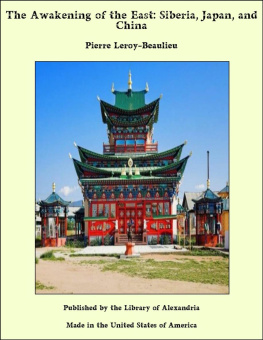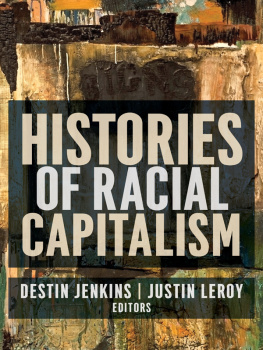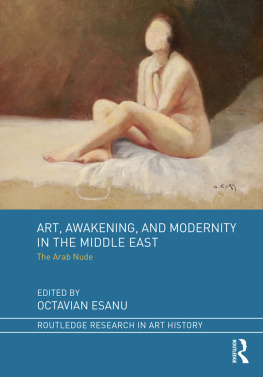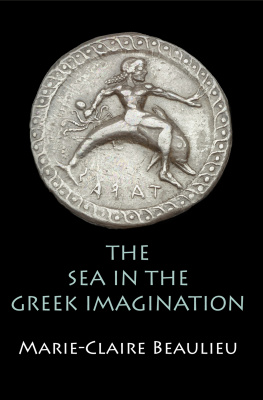PREFACE
M. Leroy-Beaulieus work appears in English at a singularly appropriate moment, and I believe that those who know most about the Far East will be the warmest in its praise. Its personal observations are acute, its statistics have been conscientiously gathered and carefully collated, they are scrupulously restricted to the particular matters they are intended to illuminate, while most valuable of all is the authors political sagacity, and the detachment, so to speak, of his attitude as an observer and investigator. If one may say so without offence, this is rare in a writer of M. Leroy-Beaulieus nationality. A Frenchman is usually so good a Frenchman that he cannot divest himself, even for an hour, of the preferences and prejudices of his own land and race. When, however, you do find a Frenchman who by temperament, research, and travel has attained to a cosmopolitan impartiality, then nobody dwells in so cool and clear an atmosphere as he. The present volume, I venture to say, is an example of this, for if there were no name on the title-page, and the word we were not used of the French people, it would be impossible to discover the writers nationality from his work. Hypercriticism might perhaps remark that M. Leroy-Beaulieu is just a little too ready to welcome as fact malicious little anecdotes directed against ourselves, such as the ingenious fiction that the British admiral saluted the Japanese admirals flag outside Wei-hai-wei before sunrise in order that the guns should awaken the sleeping Chinese seamen to a sense of their peril, not to mention his ready acceptance as typical of the insatiable British public of the amusing boast of some unnamed English newspaper that we might, if it pleased us, build a railway from the mouth of the Nile to the mouth of the Yang-tsze. But, on the whole, he probably approaches as near to the impartial spectator of an old-fashioned philosophical hypothesis as it is given to anybody in this prejudiced world to do; and assuredly the brilliant ability with which he has analyzed and summarized national and international situations of the greatest delicacy and complexity speaks for itself.
Beyond question the future of the Far East is the gravest matter before the civilized world to-day. For many generations the Eastern Question caused Sovereigns to turn restlessly in their beds and diplomatists to start at a footfall; but, as Lord Rosebery was quick to point out, there arose not long ago a Far Eastern Question much more embarrassing, much more complicated, much more pregnant with disaster. It presents itself at this moment under three chief aspects: the approaching completion of a Russian continuous line of railway from Europe to the China Sea, the frontier of Korea, and the gates of Peking; the startling entry of Japan into the comity of peoples as a great naval, military, and civilizing power; and the course of events which has led to the occupation of the Chinese capital by the allied forces of eight nations. It is precisely with these three topics that M. Leroy-Beaulieu deals, and there will be no need to recommend them to the earnest attention of British readers if the latter realizeas they shouldthat behind the third there looms without doubt the appalling spectre of a European War.
The Trans-Siberian Railway has been greatly hindered by the Chinese rising in Manchuria. For practical purposes it can hardly be said to exist beyond Irkutsk, for although the line is completed as far as Stretensk, there is yet a lack of rolling-stock, and the dreary voyage by steamers of different draughts down the Shilka and Amur rivers to Khabarofsk, where the line to Vladivostok is met, deprives the railway route as yet of all its advantages over the sea-route from Europe. The last passengers who came from Vladivostok to Moscow before the interruption of traffic spent thirty-eight days on the journey, and it will have been noticed that by far the larger part of the reinforcing Russian troops, horses, and matriel were despatched to the Far East from Odessa, no small portion in British transports. The Manchurian section of the great railway has from the first, even in times of peace, presented great difficulties of climate, lack of supplies, and hostility of the native population, but now a considerable part of the work executed has been destroyed, the Russian forces have not yet succeeded in clearing the country of the Chinese troops and irregulars, a large garrison will have to be maintained to protect the works in hand, and a long delay over the original estimated dates of completion is inevitable. All this, however, is nothing but a question of date. In national strategic enterprises of this kind Russia works with speed and tenacity. What has been destroyed will be built more solidly than before; it is even probable that recent events, as they will undoubtedly give Russia a freer hand, will enable her to secure a shorter, and therefore more effective, route from her Siberian line to China. It will not, in any case, be many years before Port Arthur and Peking will be within a fortnights railway journey of Moscow. Before then that railway will have developed agricultural and mineral wealth along its route to a degree undreamed of by those who have not studied its prospects on the spot, and it will be defended and served by every kind of protective and paternal legislation. Moreover, when need arises, every mile of the line, every station and warehouse and water-tank, every station-master, every engineer, every conductor, every patrolling convict, every locomotive, every carriage and every waggon, will be placed by a stroke of the pen at the absolute disposal of the Minister of War, while every railway in European Russia will be called upon to supply whatever may be lacking. Russia has one great advantage over other countries in times of crisisprivate interests cease to exist. It must not be forgotten, also, that the Trans-Siberian Railway is only one of Russias great strategic lines towards the East. Before it is finished, her Trans-Caspian Railway, which is already not only a military, but positively a commercial success, will be joined to it, and will have brought the frontiers of Persia and Afghanistan, and another frontier of China, within a week of the military centre of European Russia. Whether from the point of view of intercommunication, of commerce, or of diplomacy and arms, no single development so significant and so far-reaching in its consequences has occurred in the modern world.
The second aspect of the Far Eastern Question is at last happily appreciated by all. The child of the worlds old age, Japan, has grown to manhood. It is exactly eighteen yearsthe age at which Sovereigns attain their majoritysince Count Inouye first proposed to the sixteen treaty Powersincluding Peru and Hawaii!that Japan, in return for certain concessions to foreigners, should be endowed with a measure of judicial autonomy. Great Britain, to her honour be it ever remembered, led the way in this, and Japan is now a nation as independent as ourselvesthe first Oriental people to be placed absolutely on a par with the conquering and jealous West. In no respect has she shown herself unworthy of the faith placed in her. In art alone has she retrograded, but that will not be held a special reproach to her by those among us who look back six centuries for their artistic inspiration. In finance, in law, in science, in education, in manufacture, she has already attained a higher level than many so-called civilized nations, and she is progressing fast. In directions unfortunately still more calculated to compel the respect of other peoplesa very powerful army and navy, perfectly equipped, admirably disciplined, and instinct with the magnificent courage of the old feudal warriorsher advance has taken the unthinking world by surprise. But for her prompt and unselfish action in China, and the large force which her first-rate military system enabled her to despatch without delay, Europe and America would to-day be mourning the most horrible massacre of modern history. At this moment Japan and Great Britain are the only nations striving, and, if necessary, probably ready to fight, to keep China independent and undivided, open to the trade of all the world on equal terms, without selfish reservations on the one hand, and without trembling before party recriminations on the other.











